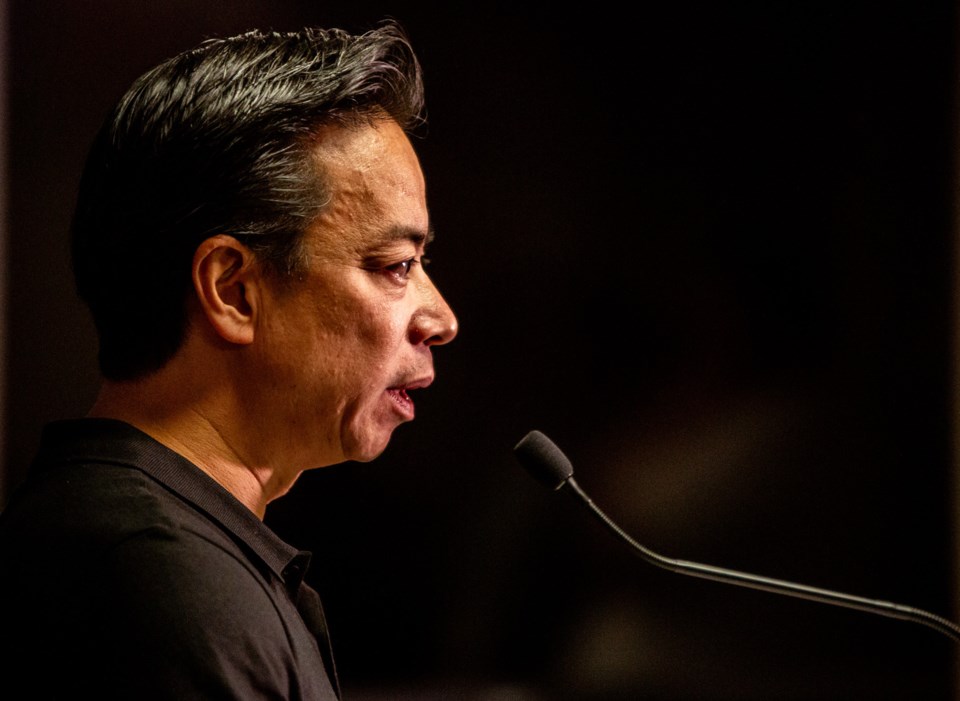Mayor Ken Sim says he will seek re-election in 2026.
The first-term mayor, who celebrated his one-year anniversary in office this week, revealed his intention to run again in an interview Tuesday.
“If we can get everything done in the next two years, then I won't run,” Sim said from his ceremonial office in the mayor’s wing at city hall. “I think the odds of that happening are…well… let’s just say I'm planning on running again. Let's just leave it at that.”
Sim didn’t volunteer the news and only revealed his intention to seek a second term after Glacier Media asked him near the end of a wide-ranging interview about whether he had considered a re-election bid.
He joked that he made the decision “three minutes ago,” but then turned serious in explaining the reason he ran in 2018 (unsuccessfully as leader of the NPA) and in 2022 (when his ABC Vancouver party won a landslide victory) hasn’t changed: “Our four boys don't see a future for themselves in Vancouver.”
Sim said he and his seven ABC council colleagues have had a year “to look under the hood” and meet with people across the city and understand more closely the challenges of a city mired in multiple crises: housing, affordability, homelessness, overdose deaths, mental illness.
Public safety, revitalizing Chinatown, assisting small businesses, a dedication to reconciliation and bringing back to Vancouver what the mayor has described as “swagger” have been and continue to be of importance to Sim and his council mates.
“With some things, we're going to have some quick wins, but some things are going to take more than four years,” he said, referring to his party’s 94-point plan, which includes hiring 100 police officers and 100 mental health nurses.
That plan, the city’s budget, his party’s relationship with developers and other issues central to city hall over the past year were all in play during Tuesday’s interview with Sim, who also used the baking of pies in an analogy to answer one question.
A chocolate, almond, rhubarb, salt pie, to be exact.
The following is a condensed and edited version of the interview.
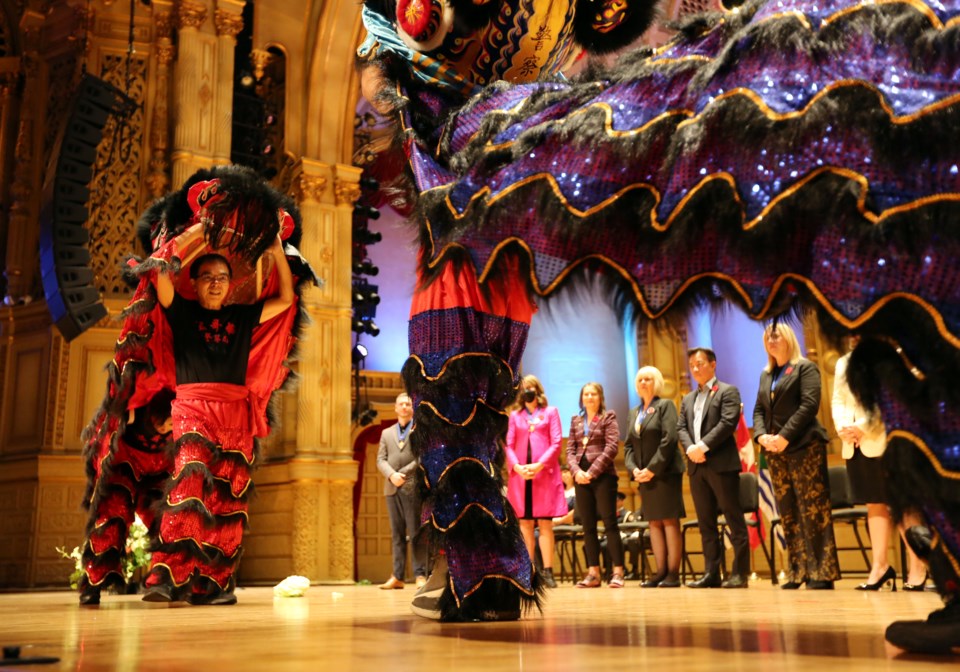
It was one year ago today (Nov. 7) that you were inaugurated before a large crowd at The Orpheum. How would you assess your performance?
We look at everything from a team perspective. I'm just one small part of the team. We also have elected councillors, park board commissioners and school trustees, and we have our amazing team at the City of Vancouver. So I do want to preface it with that.
I'm super proud of what the team has achieved. We committed to 94 things, and we've hit approximately 40 of those 94 in the first year. So we'll let the public judge how well we've done.
But is there one accomplishment you’re proud of?
You know, it's not one thing. It's a feeling. I think there's a renewed sense of hope. And I feel our city is more united than it was prior to us being in office.
What’s your evidence?
Well, it feels like the politics aren't as polarized here and people aren’t walking down the street, you know, angry.
So are you saying Vancouver’s “swagger” has returned? By the way, I’ve never asked you to explain your definition of swagger. What do you mean by that?
It’s a feeling — like, are people proud of our city? For example, the Stanley Park train. That might seem like a small thing, and I don't think we generally define swagger as little kids with their families having a great time. But you know, that is swagger, as well. We're going to create lifelong memories because the Stanley Park train is going to be open for Christmas. So that's a little piece of swagger.
Piloting the responsible consumption of alcohol in our parks — that's another example. Revitalizing Chinatown, uplifting Gastown, getting the whole city involved in the process of what the next chapter of the Granville entertainment district looks like. These are all things that will increase the collective buzz in our city.
I wanted to bring you back to the night of your victory. You said during your speech: “I do want to stress this journey is going to be really hard. There will be false starts, we will make mistakes.” What’s been hard about the journey for you in the first year of your term?
That's a great question. In hindsight, I don't think anything has been super hard yet.
What about mistakes?
There are a bunch of micro-mistakes we made all over the place, but nothing that significant. I don't know how we would do things differently. But I think we could have communicated better around the Downtown Eastside and the East Hastings encampment [when the city stepped up enforcement April 5 with police to remove tents and structures from the strip].
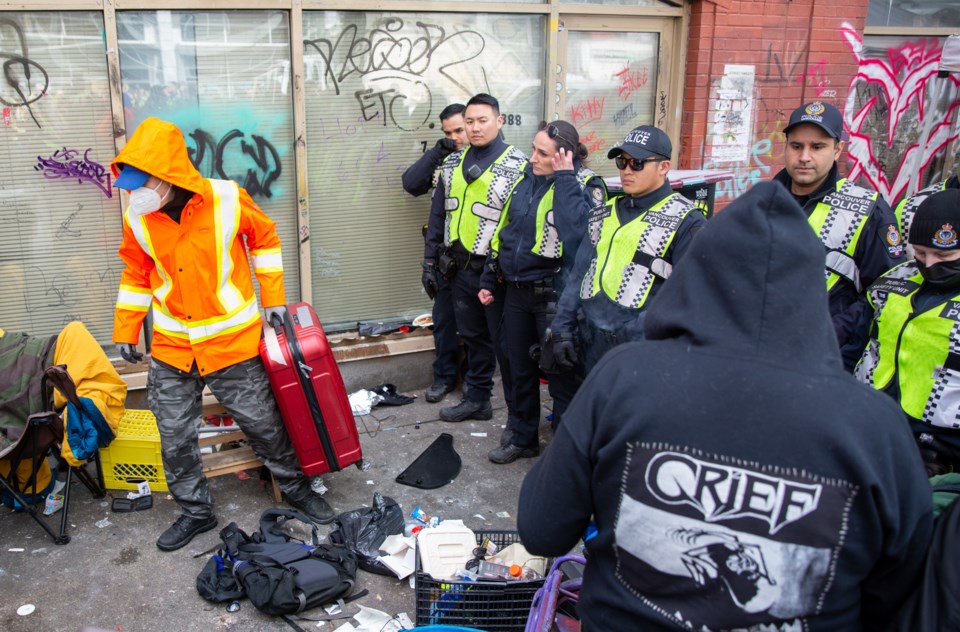
I was going to ask you about that. Critics have said it was a mistake to support the sweep, knowing there wasn’t enough housing to accommodate people living on East Hastings. Do you now regret doing that?
At the end of the day, it was a significant public safety risk. It wasn't a matter of if, but it was a matter of when I would literally have to go to some family and tell them that their mom or dad didn't make it home today because we didn't have the courage to enforce the fire bylaw.
To give you context, if one of those 100-pound propane tanks [used by people in tents] explodes, it takes out a whole city block. If that happens, we lose two to 300 units of housing. Now people are really homeless, now we have major challenges. But that's actually not the worst-case scenario. The worst-case scenario is three to 400 people die a horrific death because of an explosion.
I could have done a way better job of communicating that risk. We did have the housing in place. We had been working on it for eight months. We had done all these things empathetically and from a place of love to take care of our people. So I personally failed at communicating the extent of what was happening. Would I do it again? I would 100 per cent do it again because it was the right thing to do.
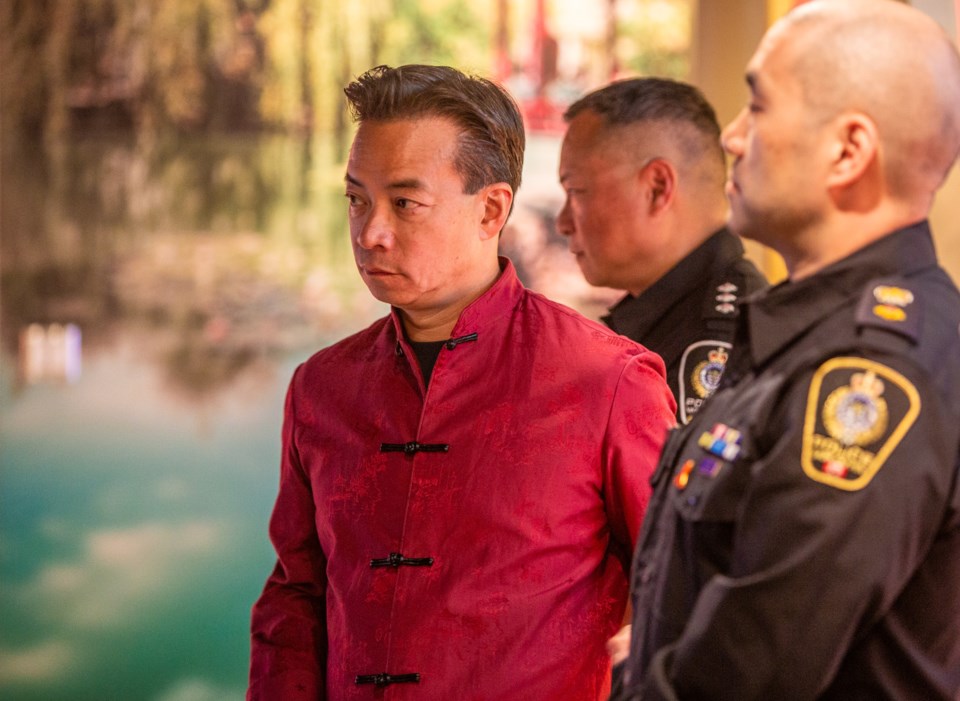
Improving public safety in Chinatown was a key plank of the of the ABC Vancouver campaign. Various media reports show there’s still violence, shoplifting, crime and graffiti happening in that community. Is Chinatown safer since you were sworn in a year ago?
I would definitely say it's safer. I would also say that doesn't mean a hill of beans to anyone who's been affected — who has experienced some violent event, or who does not feel safe. It depends on what data set you look at, but there's a lot of data that suggests that the neighbourhood's gotten cleaner and safer.
But make no mistake about it, more work needs to be done. We want that neighbourhood to be iconic again, and we want the whole world to want to come to that neighbourhood, and we want the businesses to thrive, and we want there to be a buzz.
There's been a lot of police action recently with the arrests of members of the Drug User Liberation Front and the operator of mushroom dispensaries. Do you think those arrests were warranted?
That's a VPD question. At the end of the day, we don't tell the VPD how they should operate. What we ask for is public safety and basically all the good stuff from a police service. But we don't get into the nitty gritty about their operations, about what they do, what stakeouts they do. We have an incredible police force with incredible leaders, and we trust them in what they're doing.
Right, but there are critics of the police action saying the mayor is pushing this, that this is why these arrests are happening. So for readers, can you clarify your position on public drug use in Vancouver?
What do you mean by public drug use?
Well, do you believe in providing a safe supply of drugs to people who use drugs? What about decriminalization?
Yes, and yes.
What about injection sites? Overdose consumption sites?
Yes, and to be clear, we already have de facto decriminalization. The VPD, that's how they operate. We're into harm reduction. You can't help someone with a substance use disorder if they're dead. So we want to destigmatize things. We also are lobbying with senior levels of government to provide all the support services, wraparound services and housing. Because if we just work on decriminalization alone, it is going to fail and it's going to fail horrendously.
Budget time is approaching. Can taxpayers expect another 10.7 per cent tax increase?
I don't know what the tax increase is going to be. But what I can tell you is we have 24 of the smartest people in the country on the mayor's budget task force. They have been tasked with going through our budget and to look for areas of opportunities. So I will be as surprised as the rest of the public when we receive their report because we gave them no guardrails.
We just said, ‘Look, just tell us what you see.’ What's going to happen is one of two things — they're literally going to say, ‘No, this place is running incredibly well and there's nothing else we can do.’ Or they're going to say, ‘Hey, there's a lot of opportunities, and this is what we should do.’ Either way, we're going to have our answers, and then we're going to have to deal with it as mayor and council.
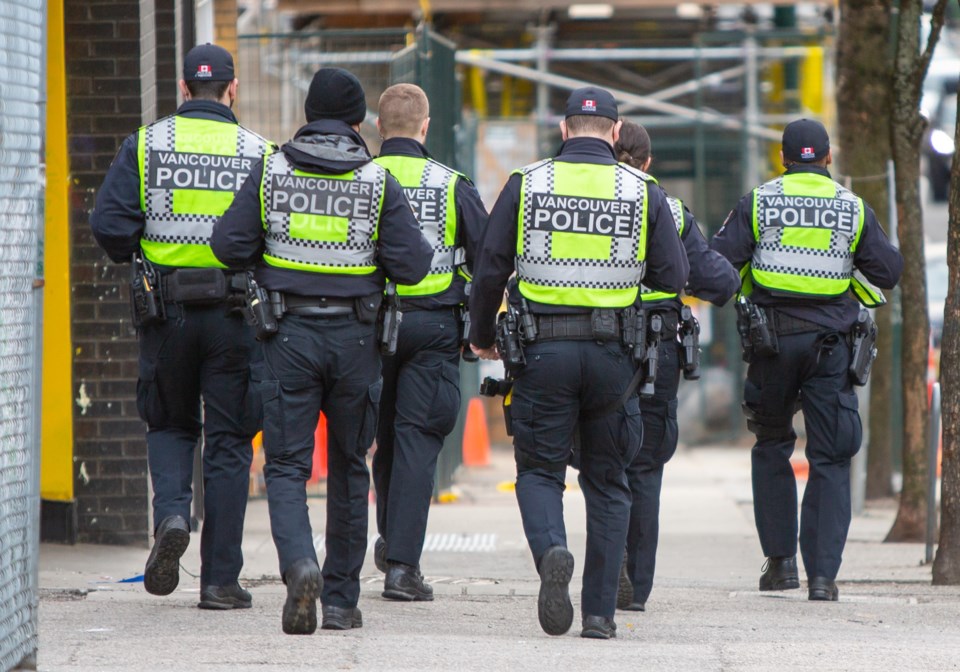
Do you anticipate hiring more police officers and firefighters in this next budget?
At the end of the day, we leave it up to the VPD and Vancouver Fire and Rescue Services to present their plans — and they have to defend their plans. And if they make sense, if they can make a business case for them or an operating case for them, yeah, then we'll support it. If they can't, then they have to hit the drawing board again.
My understanding from Vancouver Police Chief Adam Palmer is the department has hired 116 officers this year. Most are new recruits, but there's some experienced officers from other departments, as well. I checked with Vancouver Coastal Health about the number of mental health workers hired this year. It’s fewer than 15 positions. Were you expecting more at this point after unlocking the money back in February?
We were expecting more.
How many more?
Well, more than 15. But I want to give you context. We committed to hiring 100 but we have left it up to Vancouver Coastal Health to operationalize it. They came back with a plan to first hire 58 mental health workers. We’re not the experts, they're the experts, they’re on the ground. We've walked the shop floor, but we leave it up to them.
They've had challenges recruiting and hiring. On the police front, we're doing as well as could be expected. As for the mental health workers, more work needs to be done. Challenges can be overcome.
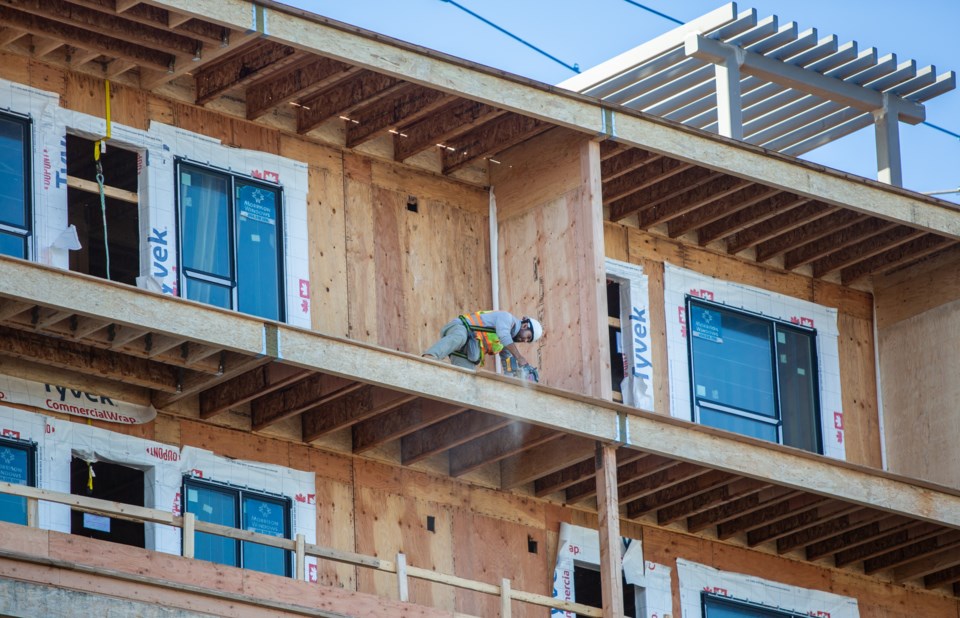
You used the word “bold” several times during your campaign to describe your housing policy goals. You used “bold” again in a recent news conference to discuss advancing that policy. Can you give readers one example of a bold move to get more homes built?
I'll describe a bunch of different things. Our 3-3-3-1 [permit] strategy is being embedded into all of our documents. We've also told the whole city that we support density, especially above transit. So the four transit stations that literally have effectively farmland around them, which is absolutely crazy. I'm embellishing here, right, but we should be densifying these areas.
We’re also doing a review of view cones and shadow policy. We've passed the 26 villages nodes [to get them pre-zoned]. We went from nine RS zones to one RS zone, which will really simplify the process. If I had my list in front of me, I'd probably have a half dozen more things.
People are looking for a silver bullet, but there is no silver bullet. But if we start making it easier to build housing of all different types, it’ll be pretty substantive. We have a couple of other really big things that I will not talk about right now. But don't be surprised if you see them in the next three to four weeks.
I know the B.C. government set a target for Vancouver to build 28,900 units over five years. Do you think you can reach that goal?
Well, we can do everything in the City of Vancouver to create an environment where we can build them. But I think people have to realize that the City of Vancouver doesn't build homes. We're in the business of zoning and issuing permits. We need to speed up that process so people can build faster.
But if we're in an environment where interest rates are at 10 per cent and builders aren't building at all, it doesn't matter how quickly you issue a permit — they're not going to build. But if we create an environment, and the economic environment is such that it works for builders, then I truly believe that we can hit those targets.
That’s a long way of saying we're going to focus on what we can control to hit that number.
In the B.C. Court of Appeal today, City of Vancouver lawyers are fighting to reinstate the SRO vacancy control bylaw, which was supported by the previous council. Do you support vacancy control in SROs?
I've been tied up in meetings all day, so I haven't seen that. But what I can tell you is when we actually zoom out, our SROs are terrible. And we need to create more livable units that people can access. So let's talk about that instead. You've seen these SROs. A lot of them are not livable.
Yes, but having vacancy control in SROs would be a big deal for many people in this city. I can give you an example — the Lotus Hotel — where tenants are taking cash buyouts only to see their former suites be rented for double and triple the previous rent. So again, do you support vacancy control?
What I support is we have to build housing of all types. When it comes to people who have limited economic means, we have to have different mechanisms in place to support them. It's the right thing to do from a humanitarian perspective. But it's also the right thing to do from a fiscal perspective because we're way better off from a fiscal position, if we have people housed versus if we have people that are unhoused.
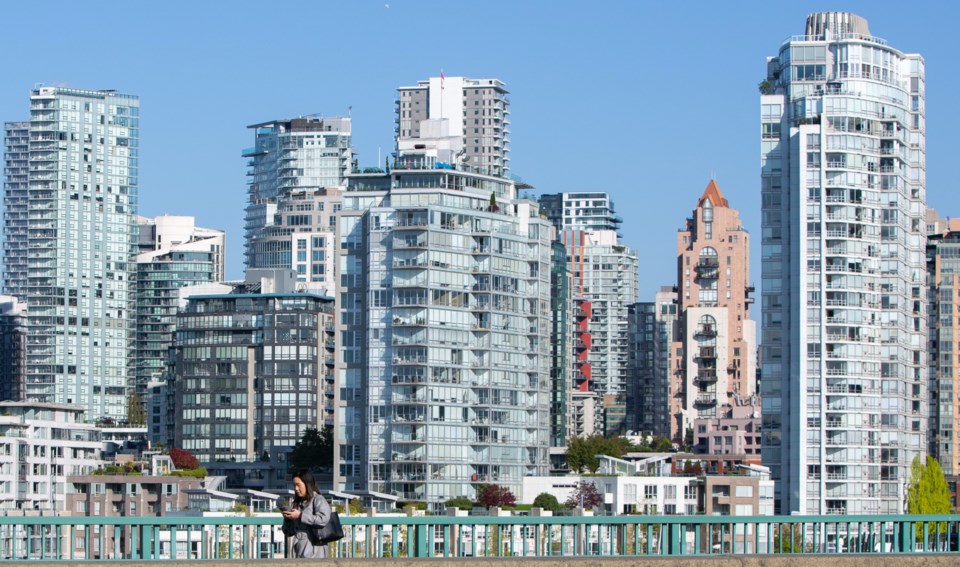
During your first term, your party voted to return $3.8 million in empty homes tax money to developers. Just last week, the ABC majority also gave what Coun. Rebecca Bligh described as “a break” to Holborn Properties Ltd. regarding the Little Mountain development. So what do you say to critics who have labelled ABC as a developers’ party?
It's not accurate at all. No one gets any special favours here. What we're doing is we need to create an environment where builders can build, where they can build faster and want to build. Leadership is making decisions that may not be politically expedient, but they're the right decisions to make. Other groups will weaponize our decisions for political gain.
So let's talk about a refund of the empty homes tax on unsold units.
The example I like to give is baking pies. Imagine if you're in the business of baking pies. And then someone said, ‘Every 10th pie you have to make is a chocolate, almond, rhubarb, salt pie — and good luck selling it. And every unsold pie, you're actually going to have to pay a tax as well.’ At some point in time, that baker will go, ‘Well, I'm just going to go to Burnaby and bake pies there, because I don't have to do all that.’ What we have to do is not penalize people when we force them to build a certain product, and then they can't sell it.
I know some people will weaponize it and they find it distasteful. But we need to create an environment where developers and home builders want to and can build successfully here. If we do that, we will build more homes for everyone who wants them.
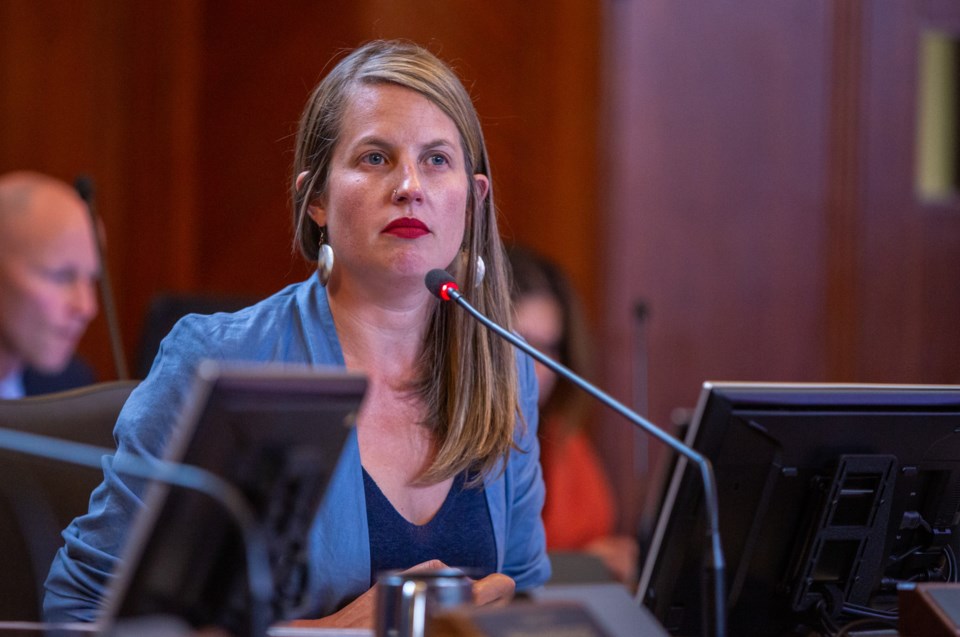
Speaking of politics, I know you filed two complaints with the city’s integrity commissioner against OneCity Coun. Christine Boyle. The first one had to do with her publicly stating how she voted at an in-camera meeting regarding the city’s now-scrapped living wage policy. The other was related to public remarks she made about your communications director. Some members of the public might think you might have some sort of personal beef with councillor Boyle.
I have no personal beef with Christine. I actually really like Christine. I think she's a very nice person. But just to be very clear, the Office of Mayor and Council is bigger than any one person, including myself. I want to be very clear about that. So anything that I feel hurts the Office of Mayor or Council, we will address it. None of it's personal.
So on the first one, I felt that there was a breach of in-camera protocols. So what actually happened was [we discovered] there were two sets of rules. Now we can work on the rules so it's very clear how we communicate what happens in-camera and what we cannot say.
What's at stake is we need a safe room where people feel that they can have safe conversations. And if you don't have that, then in-camera meetings are a complete waste of time.
On the second complaint, it was completely valid and councillor Boyle was found in violation [of the code of conduct]. Once again, we take the Office of the Mayor and Council very seriously. And it's above anyone person. There’s certain guidelines that you just can't cross, myself included.
I wanted to talk to you about the results of the most recent Greater Vancouver homeless count, which recorded 4,821 people without a home across the region. Vancouver accounted for more than half of that population, at 2,420 people. I know you’ve only been in office for one year, but do you as mayor share any responsibility for the rise in homelessness?
I think people don't really care if I take responsibility or not, they're going to look at the mayor and say it's a mayor issue. So let's just call it what it is. As a resident of Vancouver, who loves this city and the people here, it's terrible to see this stuff. So we want to deal with it.
But there's a lot of things we don't control. We don't control the economy, we don't control interest rates, and people are losing their homes. People can't make ends meet. And so there's going to be a natural increase in homelessness across our country that has nothing to do with the Office of Mayor and Council in the City of Vancouver.
That's not a cop-out, that's just an explanation. What we need to do is look at things differently. And that's where being great partners with the province and feds comes into play. It's what we should do anyways. When people know that you're a good partner, and we're working towards common goals together — and they can trust the City of Vancouver to live up to their commitments, and be great partners — a lot of good things can happen.
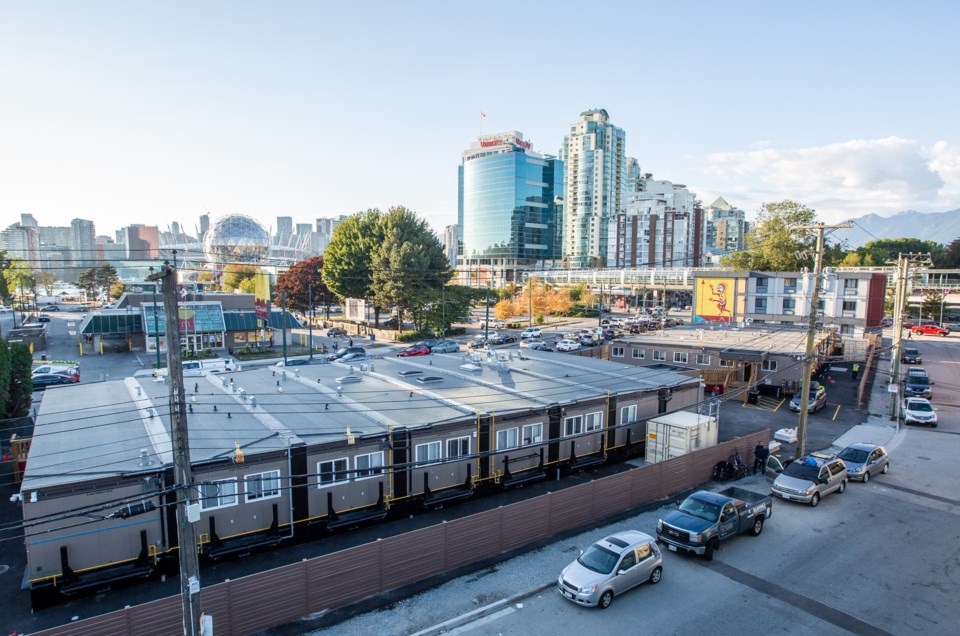
Can you give me an example?
Here’s a small one. We didn't solve homelessness, but we wanted more housing for homeless people, and the province came up with 89 units of workforce housing. We had to act very quickly [to get it approved for city land]. We had that approved in a couple hours. So that's a great example of working collaboratively together. I don't think people even thought that we would be able to work together, but we work together. And we know that was a win there, and there are going to be future wins.
Seeking re-election is a big commitment when you consider the long hours, time away from family, etc. Why do it?
You don't have to put in the long hours, you can mail it in. I could show up at 9:30 in the morning and leave at three o'clock in the afternoon. We purposely don't try to start before seven in the morning. And we try to end at 10 o'clock at night, seven days a week. And we love it. I say ‘try’ because we actually want to start earlier. And we want to end later because we don't have enough time in the day.
It’s an honour, and it's a privilege. I'll look back at this when it's all over and I know — barring something absolutely ridiculous — this would have been the most fulfilling time in my life, beyond running businesses, or working in banking, or becoming a chartered accountant or travelling or whatever. This has been the most fulfilling job, except for some of those public hearings and some council meetings. Some of them drive me nuts.
We have this amazing opportunity to do amazing good in the city that we love with all the residents that we love. So it's an honour and a privilege. Every day is a journey. Now I sound really corny, but it's true. It's awesome.
Note: Glacier Media did interviews with Sim after his first 45 days in office and when he reached the six-month mark. They can be read here, and here.
